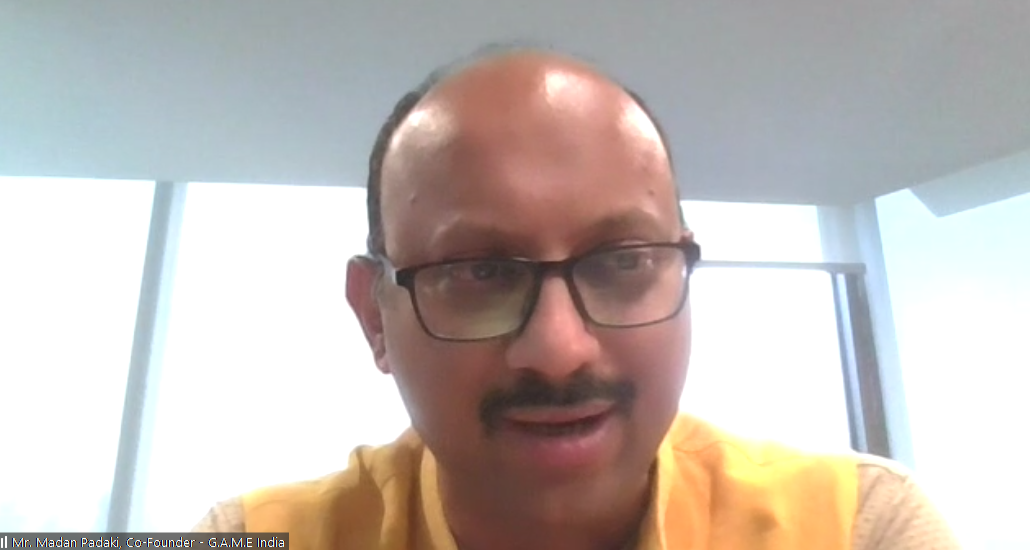Students and youths should be taught the new-age entrepreneurial skills to be future ready: Madan Padaki
IB Schools strives to mold their students into a better individual who has the ability to solve complex problems of the real-life world through their intercultural understanding.
ASMA’s webinar on School Education Leadership Forum was a successful event that was attended by the major stakeholders, and educators of IB school and related industry. The webinar was also attended by Madan Padaki, who is the co-founder of G.A.M.E India (Global Alliance For Mass Entrepreneurship).
Madan Padaki co-founded a company called Merit Trac which is India’s first skill assessment system. The members of the Merit Trac company go to various schools and colleges and run various assessments which are also known as the employability assessments. They conduct exams government service exams and so on. Merit Trac was initially founded by Madan and his partners and it went through a roller coaster ride but it eventually got acquired by Manipal, still being an individual entity under Manipal organization.
Merit Trac was the first company to put out a complete research note on employability. Way back in 2005 when they have assessed the employability skills of the engineers and came to the conclusion that only about 24% of them were really employable as per the industry standards. The sad part is that a large part of these conversations and assessments has remained the same since 2005 and 20066. We are still grappling with the problem of unemployment today. As the need for opportunity is high, so are the job demands. Youths after completing their education apply for jobs in both formal and informal sectors.
Although there are 15 million jobs in the formal sector but it has only 10% of employees. The rest of the youth are working in informal sectors. Now, the question arises if they can create entrepreneurs or develop entrepreneurship skills within the students so that those new-age entrepreneurs can offer jobs to the unemployed. These entrepreneurs can create job opportunities for the unemployed locally. This, in one way, can curb the issue of unemployment.
In the School Education Leadership Forum, Padaki also says that their initial idea was to look for youth from rural areas and educate them to be future-ready by imbibing new-age skills in them. There were youths who were completely illiterate and have never taken up a pen or pencil in their life. However, Padaki and his team’s goal was to take this as a challenge and show the world how youths can be trained for employment. He also comes up with a series of videos in the webinar where the audience can see a youth named Ramesh, belonging to a remote village of Karnataka; sharing his success story.
Youths like Ramesh are exposed with the capability that helps them to prosper in their lives. Ramesh who didn’t know reading, writing, and speaking in English, years later could be seen on National TV receiving Award and narrating his life’s story. Ramesh now works in a BPO company as a Team Leader and wants every youth from rural areas should be given an opportunity to prosper.
Not only Ramesh, but Padaki and his team have worked with youths who went on to their villages as entrepreneurs and help their friends get enrolled in such learning programs. This is a true example to perceive that every person has got potential but they need an opportunity to exhibit those. Youth now go out learn new skills start their own business and help other youth of their village to get engaged with various learning programs so that they can do something on their own.
Padaki, in the School Education Leadership Forum discussion now moves on to say how he and his team have come up with the idea of testing the entrepreneurial skills within the school students. The students were provided with a business grant of 2000 Rupees to come up with a business idea. When they went ahead to see this strategy was working and the students were actually making profits and sharing the profit amount with them. They successfully created viable business propositions, connected with the customers, and understood how money flow works.
This strategy was mainly done so that they could imbibe entrepreneurial skills within the students. When the students for pass out from their schools, they can come up with some entrepreneur ideas and start with their own business. In this way, the students can become the social change makers.
Padaki suggests that every school should lead the students to the pathway of entrepreneurship so that the issue of unemployability could be cut out of the nation. IB schools are currently imbibing the entrepreneurial skills within their students, so that they can become the new-age leaders and be future-ready.




